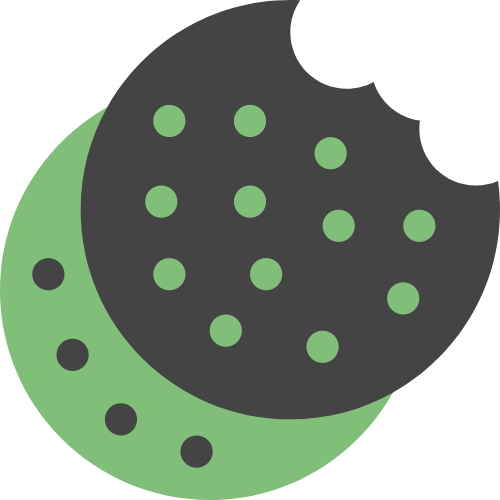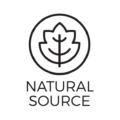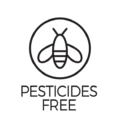
- Food Science
-
by k.mammasis
There is a large difference between synthetic nutrients found in supplements and the nutrients naturally contained within the foods you eat. Researchers are becoming more aware of this fact, and the dispute over natural vs synthetic nutrients is becoming less and less relevant. The vitamins and biochemical compounds found within our functional foods are not isolated. They are highly complex structures that combine a variety of enzymes, coenzymes, antioxidants, trace elements, activators and many other factors all working together synergistically, to enable these natural healthy foods to do their job in your body 1.
Nutrients from within this complex cannot be isolated from the whole, and then be expected to be as effective in the body as the whole complex is designed to do.
Nature does not create any vitamin in its isolated form. Food nutrients are combined in a specific way and perform optimally in that “format”, which is scientifically called the complex food matrix. To function correctly in the body, an isolated nutrient need all of the other components that are naturally present in food. They, like drugs, can cause complications for you (()). If not all of the pieces are present at the start, they are drawn from the body’s stored supply. This is why isolated nutrients frequently appear to work for a short period of time and then appear to stop working. When your body’s reserve of additional nutrients is depleted, the isolated nutrient you’re taking no longer works as well. Worse, your body may develop a deficit in these extra nutrients. Furthermore, because most nutrients are extracted from the foods they come in using a variety of potentially harmful solvents and other chemicals, consuming large amounts of these items can expose you to these potentially toxic compounds. Why would anyone want to introduce more chemicals to our body, given the load we now face from the huge quantity of chemicals in our environment?
The many components of a natural vitamin complex interact in a synergistic manner. The term “synergy” refers to the fact that the whole is greater than the sum of its parts. Judith DeCava 2, a functional nutritionist based in the USA, says it best:
“When a combination of components (in a vitamin complex) is separated, it is transformed from a physiological, biochemical, active micronutrient to a handicapped, debilitated chemical with little or no value to living cells. The synergy is no longer present.”
What’s the Difference?
The majority of nutrients contained in dietary supplements are synthesized chemically to mimic the natural nutrients present in food. Currently, more than half of the US population consumes synthetic nutrients such as multivitamins. However, whether synthetic nutrients deliver the same advantages as natural nutrients has sparked heated controversy. Some studies even claim that synthetic nutrients are harmful. Dr. Royal Lee’s 3 statement eighty years ago, emphasized precisely on this difference:
Vitamins are not isolated chemicals, as chemists and pharmacists classified them, but rather biochemical systems composed of several linked substances that work together to fulfill a nutritive function. While isolated food fractions may have a pharmacological (drug-like) impact, they are not nutritious and do not belong in the nutrient category.
- Natural nutrients: These are received in the diet from whole food sources. Nutrients from within this complex cannot be taken apart or isolated from the whole.
- Synthetic nutrients, also known as separated nutrients, are created artificially through an industrial process.
Natural Nutrients
Check the label to see if your product is synthetic or natural. Some may be easier to absorb than others 4. This is because when you eat actual food, you are getting a variety of vitamins, minerals, co-factors, and enzymes that allow the body to use them optimally. Synthetic nutrients are unlikely to be utilized by the body in the same way as their natural counterparts if these extra synergistic components are not present 5. Natural vitamin E, for example, is absorbed twice as well as synthetic vitamin E, according to research 6.
Our High Phenolic Olive Oil with Vegan Omega 3 6 9 contains high amounts of natural vitamin E, so this is another reason for you to consider it for your daily functional nutrition needs. Last but not least, there is no risk of overconsumption associated with natural nutrients as opposed to synthetic nutrients. This is why you should avoid overdosing on supplements.
Synthetic Nutrients
The vast majority of supplements on the market today are manufactured artificially. These contain, among other things, vitamins, antioxidants, minerals, and amino acids. They are available in pill, capsule, tablet, or powder form and are designed to replicate the actions of natural nutrients in our bodies. Note that the synthetic nutrient manufacturing method differs greatly from that of plants and animals. Furthermore, what is deemed ideal consumption of one single nutrient for a specific health problem, such as lowering the risk of heart disease, may not be optimal for other health challenges, such as osteoporosis or cancer. Using an isolated nutrient in this manner may increase the risk of certain diseases.
MILESTONE® Tip: Always follow the advice of your doctor, especially if you are under medication or pregnant.
Functional Foods are Effective
When exposed with all of the nutrients in a whole food, the body uses selective absorption to increase or reduce uptake of what is required at the time. Because of the minute amounts and significant synergistic interactions of the ingredients, as well as the dose-limiting bulk of fiber and the nutrient-satisfying quality of whole meals, food is safe and beneficial for many areas of health. Natural functional foods contain elements that are well-balanced. These foods do not cause imbalance, depletion, overstimulation, or suppression. Food is effective!
Potency
Potency is not the same as quantity or quality. Even if a whole food contains less measurable amounts of specific chemicals than a supplement containing isolated and/or concentrated components, the entire food gives the most health benefit and effectiveness—the most potency. Power, force, and the ability to perform or achieve a desired effect are all examples of potency. Isolated vitamins, minerals, amino acids, phytochemicals, and other compounds can be employed in large or huge amounts to direct or regulate metabolic pathways—to stimulate or repress. However, that effect is not nutritional; rather, it is pharmacological. The body’s cells are not being fed, they are being compelled. Nobody knows how much of a given nutrient or food/herb element an individual should consume. Attempting to find such a thing is predicated on the notion that specific symptoms of illness are produced by specific, quantitative shortages of specific single nutrients. When it comes to genuine nutrition, this kind of thinking is incorrect 2.
In general, symptoms may exist that convey information about nutritional complexes that are insufficient in an individual. Pernicious anemia, for example, may be caused by a vitamin B12 shortage, but a person with this illness also requires additional B vitamins and associated nutrients. Scurvy is caused by a lack of vitamin C, however it is the vitamin C complex—with all of its cofactors and other related elements intact (as in citrus fruit)—that is needed, not ascorbic acid, a synthetic isolate of vitamin C. 2
Holistic Effectiveness
Multiple metabolic pathways are implicated in the same or similar sets of illness symptoms in the vast majority of cases. The most baffling and perplexing aspect of nutrition, however, stems not only from the complexity of underlying causes of illness and the unique individuality of each human person, but also from the extraordinary complexity of nutritious components in foods. A spinach leaf, for example, contains about 10.000 chemical components. Other foods, whether plant or animal-based, may be considerably more complex. In nature, any individual nutrient, whether a vitamin, a mineral, or a single nutrient from any source, functions within a complex network of other metabolic modulators that may have a synergistic or a confusing effect. This complexity is so tremendous that even today’s most advanced scientific tools haven’t figured out what happens within live foods and inside living cells in the human body 2.
There are a few product manufacturers that actually use real foods and whole herbs to produce tablets, capsules, or powders. They are low potency as far as the numbers on the label go, but they are high potency with respect to the symbiotic, whole food complexes they contain – Judith A. DeCava.
Synthetic Nutrients May be Harmful
Taking extra supplements can surpass the recommended daily intake of several nutrients if you already obtain a diverse variety of nutrients through your food. Water-soluble vitamins, such as vitamin C and B vitamins, are flushed out of the body through urine when consumed in excess. Fat-soluble vitamins, such as vitamins A, D, E, and K, can be stored in the body. This implies there’s a chance they’ll build up to dangerously high levels, resulting in hypervitaminosis.
Many clinical research have found that beta-carotene, vitamin E, and possibly excessive doses of vitamin A can raise the chance of dying prematurely 7. Other research has connected multivitamin use to an increased risk of cancer, and iron supplements can be dangerous to persons who don’t require them 8 9.
Summary
Synthetic nutrients, according to research, are not a substitute for a healthy, balanced diet; nor are supplements. The potency of a supplement is determined by synergy rather than nutrient quantities. On this basis, the cumulative effect of all the ingredients of the diet is more important than the chemical action of a single part. Natural nutrients obtained from complete foods should always be preferred. So if you are actually deficient in a particular nutrient, then complementing your daily diet with our functional foods will be of great health benefit to you and your kids. Feel free to navigate to our online natural foods store and discover the benefits of our functional foods designed for you.
A Word From MILESTONE®
MILESTONE® Food for your Genes uses only high-quality sources, including peer-reviewed studies, to support the facts within our articles. Read our editorial process to learn more about how we fact-check and keep our content accurate, reliable, and trustworthy.
[pdf-embedder url=”https://www.ofdreamsandknowledge.com/wp-content/uploads/55_DecavaWholeFoodsJournal-compressed.pdf”]
- By Judith A. DeCava, CNC, LNC. Focus on Education, Whole Food Nutrition Journal, 2003.[↩]
- By Judith A. DeCava, CNC, LNC. Focus on Education, Whole Food Nutrition Journal, 2003.[↩][↩][↩][↩]
- https://www.drroyallee.com/what-is-a-vitamin/[↩]
- Yetley EA. Multivitamin and multimineral dietary supplements: definitions, characterization, bioavailability, and drug interactions. Am J Clin Nutr. 2007 Jan;85(1):269S-276S. doi: 10.1093/ajcn/85.1.269S. PMID: 17209208.[↩]
- Liu RH. Health benefits of fruit and vegetables are from additive and synergistic combinations of phytochemicals. Am J Clin Nutr. 2003 Sep;78(3 Suppl):517S-520S. doi: 10.1093/ajcn/78.3.517S. PMID: 12936943.[↩]
- Burton GW, Traber MG, Acuff RV, Walters DN, Kayden H, Hughes L, Ingold KU. Human plasma and tissue alpha-tocopherol concentrations in response to supplementation with deuterated natural and synthetic vitamin E. Am J Clin Nutr. 1998 Apr;67(4):669-84. doi: 10.1093/ajcn/67.4.669. PMID: 9537614.[↩]
- Bjelakovic G, Nikolova D, Gluud C. Antioxidant supplements and mortality. Curr Opin Clin Nutr Metab Care. 2014 Jan;17(1):40-4. doi: 10.1097/MCO.0000000000000009. PMID: 24241129.[↩]
- Mursu J, Robien K, Harnack LJ, Park K, Jacobs DR Jr. Dietary supplements and mortality rate in older women: the Iowa Women’s Health Study. Arch Intern Med. 2011 Oct 10;171(18):1625-33. doi: 10.1001/archinternmed.2011.445. PMID: 21987192; PMCID: PMC4114071.[↩]
- Reynolds LG, Klein M. Iron poisoning–a preventable hazard of childhood. S Afr Med J. 1985 Apr 27;67(17):680-3. PMID: 3992389.[↩]

















